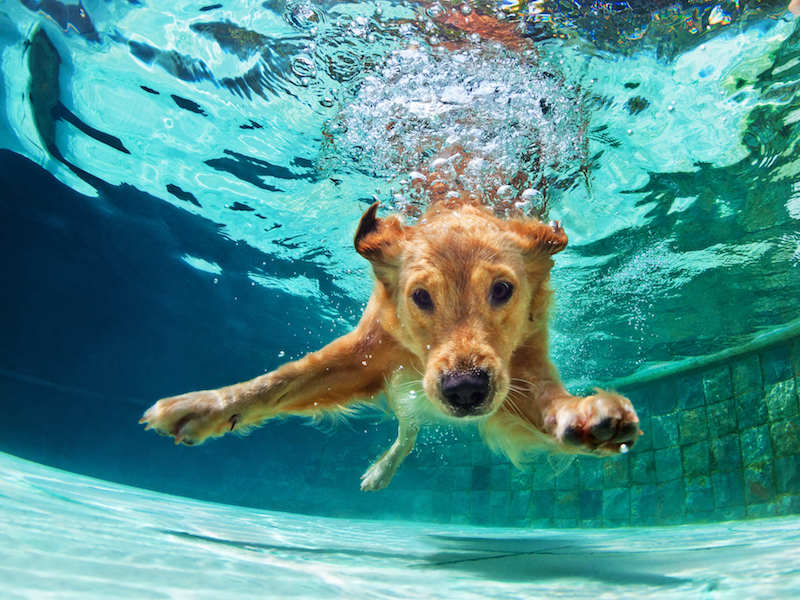
There are many factors which can affect the electrical circuitry of your hearing aids. Hearing aids seem to self-destruct under extreme moisture conditions. Even if you already know that and take care to protect your investment from the shower, pool, or a good face washing, more than likely you are missing the most common reason for water damage in hearing aids: humidity.
Moisture that you can’t see has the highest chance of causing permanent damage. It’s time to understand more about why humidity is a damaging thing for hearing aids.
Understanding Humidity
Despite the fact that the word humidity is very common, what does it actually mean? PBS describes humidity as water molecules in the air. The relative humidity refers to the ratio of water molecules in the air compared to how many the air can actually hold. When you can feel wetness in the air, that means the relative humidity is high.
Humans are very sensitive to humidity because sweat is the most effective way to cool down the body. When humidity levels are too high our sweat will not evaporate as quickly. Moisture and electronics don’t mix well and that includes hearing aids.
Typically Electronic Devices Have a Hard Time Dealing With Humid Weather
Strangely enough, electronic devices are not just sensitive to high humidity but low levels as well. When water vapor percentages are high condensation can collect on the delicate mechanisms that make electronic devices work, and low humidity can lead to brittle core materials.
Hearing aids depend heavily on internal electronics to work. Modern digital hearing aids use a sophisticated signal processing chip to control noise. It’s what is behind elegant features like:
- Noise reduction
- Anti-feedback
- Targeted listening programs
- Digital sound streaming
High humidity causes moisture to collect in the hearing aids damaging that chip. It can corrode elements inside the casing and ruin batteries also. You might as well throw your hearing aid in a tub full of water, and the effect is the same.
Keeping Humidity Under Control
If you are investing in hearing aids, try to look for products that are water-resistant. This feature will give you some protection against humidity and wet weather, but you still can’t go swimming with them in.
When it’s very humid try to cut down on indoor water vapor by utilizing a dehumidifier. It’s not only your hearing aid that will benefit, there are health benefits, and other electronics in the home will also be protected. Dust mites, mildew, and mold thrive in moist environments so a dehumidifier will improve the quality of breathing as well. However, protecting your hearing aid more completely will require additional thinking. You will need to take other steps at the same time.
Look for the dehumidifier made for hearing aids. They come at all costs levels. Silica gel crystals in a drying kit are used to protect electronics. Moisture is eliminated by putting the hearing aids into the dehumidifier for a couple of hours. Drying your hearing aids as you sleep at night can be done using specially designed storage containers. In a pinch, you could use a bag of uncooked rice to remove moisture.
Don’t forget to leave the battery door open when you store your device. When you expose the battery and inner elements to air by leaving the door open, condensation can evaporate by itself. Don’t just do this in the summer, do it all year round.
Always store your hearing aids in a cool, dry place. Avoid putting them in the glove compartment, in a hot room or on a table in the sun.
Other Moisture Issues
Damage can be caused by other types of wetness. Take precautions to protect them from other kinds of wet such as:
- Make sure all lotion or sunscreen is fully absorbed before touching your hearing aids or putting them in your ears.
- Find a safe place to store your hearing aids if headed for the pool or beach.
- Wear a sweatband when exercising. It’s a good practice whether you wear your hearing aids when you workout or not. Sweat in your ears can cause problems later.
- Check surfaces before you put your hearing aid down. You don’t want to place it in a wet spot left by a glass or coffee cup.
Your hearing aids are a valuable asset, so treat them that way. Keep in mind how moisture can damage your hearing aids and make sure to prevent water from getting in them. If your hearing aid already has water damage make an appointment for service with a hearing aid specialist.
